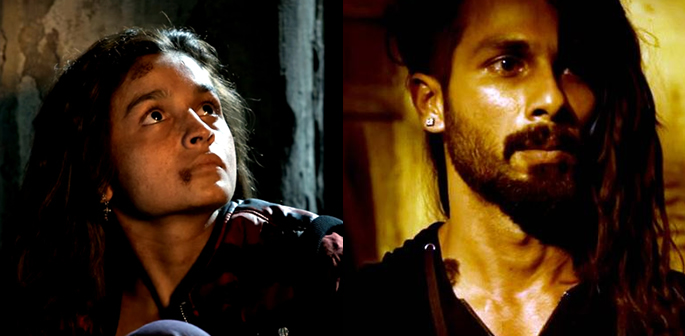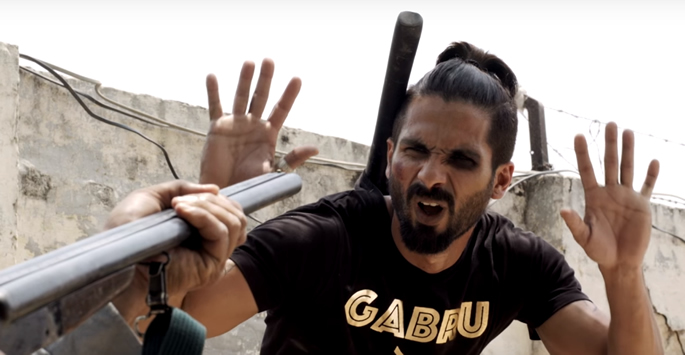"[Censorship] does stifle my creative freedom"
The battle between broad-minded filmmakers and the strict Indian Censor Board has been brewing issue for decades.
The ability for brave filmmakers to push the boundaries of Indian cinema has often met the disapproval of the Indian Censor Board for many reasons.
The decisions of the Indian Censor Board can often hinder and limit the ability of filmmakers to express their creativity and produce cutting edge cinema. But is this fair? Should filmmakers feel inhibited by what they can or cannot show on screen?
Filmmakers in India have often attempted to broaden the scope of Indian cinema.
By moving away from commercially-led masala movies to produce films with social issues which reflect underlying problems within society, filmmakers have added their individual touch to the industry.
Whether they tackle issues such as sexuality, crime, drugs or cultural taboos, numerous filmmakers have expressed their creativity through their individual depiction of controversial topics.
However, a recurring problem for many films has been the Censor Board’s ability to cut provocative scenes. By declaring them as inappropriate, vulgar or having the ability to incite communal disharmony, films have often had scenes forcibly removed.
Along with making filmmakers delete scenes, the censor board has even banned certain films due to the nature of their content.
Previously, many controversial films including The Bandit Queen (1994), and Fire (1996) were banned due to the sexual content and the presence of a lesbian relationship.
These films are now praised for their bold storylines and important social issues. But by being banned at the time of their release their ability to impact their intended audience is diminished.
More importantly, by banning and deleting daring scenes, filmmakers are discouraged from openly exploring and discussing these creative avenues.
With the fear that their film may never be released or that their creative and daring input may just be deleted from the film, the censor board can restrict the creativity of filmmakers.
The issue of violence and sexuality being censored is not an issue of the past. Previously the board had drawn upon India’s more conservative approach to sexuality and cultural taboos when cutting films.
However in 2016, where society and films have definitely evolved it is surprising that films today are still facing the same battle.
Anushka Sharma was very vocal in her struggle for NH10 (2015) to be approved due to violent scenes within the film, which when released, went on to be a hit film.
Similarly, legendary actor Kamal Haasan’s 2013 release Vishwaroopam faced difficulty. It was initially banned in Tamil Nadu for 15 days, and only released after certain scenes were muted.
When describing his relationship with the Censor Board and his ability to truly express his creative potential, Kamal Haasan expressed: “It does stifle my creative freedom.”
Are the Censor Board right to restrict filmmakers in such away? Or is a film’s sole purpose to simply entertain and not educate, enlighten or inform its audiences of society’s underlying issues?
The latest film to be engrossed in a battle with the Central Board for Certification (CBFC) is the Shahid Kapoor, Alia Bhatt and Kareena Kapoor film, Udta Punjab.
Anurag Kashyap one of the producers of the film, is not new to clashing with the Censor Board. His previous film Paanch, was banned from releasing due to its violence and its depiction of drugs.
However, this has not prevented Kashyap from exploring his creativity in filmmaking and his ability to make films about tough subjects.
One look at the gripping trailer reveals that this film paints a picture of Punjab’s struggle to tackle drug addiction with its youth. It attempts to highlight social problems with a Bollywood twist.

However, this trailer was enough to cause commotion with the Indian Censor Board. Udta Punjab’s gritty portrayal of drug abuse is not sugar coated. Nor is it the authentic clean family friendly Bollywood film.
Instead, it attempts a realistic and explicit depiction of the very real social issue that the Indian state faces.
The abusive language, and portrayal of drugs within Punjab was immediately criticised by the Censor Board who accused the film of portraying Punjab badly and promoting drug use among India’s youth.
The Censor Board proposed that the film should remove the words ‘Punjab’ from the film, and also remove numerous swear words and the words ‘parliament’ and ‘legislators’.
However, the court’s decision to stand by the film saw Kashyap’s film triumph against the Censor Board. And the initial request of 89 cuts was reduced to only one.
As the court states, the job of the board should be to certify and not censor. The landmark win for Udta Punjab against Indian censorship suggests a movement in the right direction for many cutting edge filmmakers.
But directors are still unhappy at its slow pace. Kashyap and his colleagues have called for an overhaul of Indian censorship entirely, with new, more broader rules to be implemented:
“The system needs to change, new guidelines should come and a new censor board chief is needed. All this needs to happen. (The) fight is about ideology. We want a certification board,” he insists.
Whilst the Censor Board has a difficult role in certifying films for appropriate audiences, their decisions have often invoked backlash from the film industry.
Films and music are a medium for artists to portray their creativity and tackle issues which they feel passionate about.
Preventing filmmakers from delving into controversial issues suppresses their creativity. It also removes their freedom to make films which are free from legal or cultural restrictions.
The court’s decision in favour for Udta Punjab is highlighting a shift in ideas. Will this decision now help other filmmakers make films with creative freedom?
































































